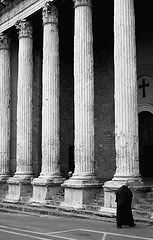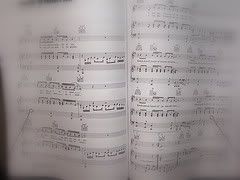This is kind of an incomplete post because it only describes a question. I don’t have the answers yet from the parties involved.
Throughout the years, Christian leaders have tried to reform what they see as digressions in the practice of worship. These are honest Jesus-loving, God-fearing, bible-reading people. So they say, OK, enough of this! We are going to throw all our preconceived ideas about worship out the window and figure out what God, Jehovah, the self-existent one really wants.
It’s interesting to see what happens then. I have two examples of this very thing happening locally with two local congregations: Living Faith Fellowship, a non-denominational charismatic church led by Karl Barden and Christ Church, an Evangelical Free turned Reformed congregation let by Doug Wilson. The similarities in the congregations are amazingly parrallel. Both were started about the same year in the early 70s just a few miles from each other. Both grew to a congregation of several hundred before the pastor introduced their worship reforms. This happened mid 80s to early 90s.
Both pastors were uncomfortable with traditional evangelical worship. What did it look like? A mix of older hymns and some new (typically Maranatha) style praise choruses. Both of them decided to retreat into the scriptures and figure out what they really SHOULD be doing. Both focussed a lot on the psalms.
Both were in such similar circumstances and set out to do the same thing…and came to remarkably different conclusions!
Barden decided that we need to DO all the things the psalms talk about when they describe the worship of God. We need to dance and twirl in worship, we need to have lots of musical instruments, cymbals, harps, lyres, trumpets and all that. We need to have banners and streamers and all these other things that are described in bible.

Wilson decided that we need to sing the psalms. All of them. Verbatim. The ones of praise, the ones of lament, and the ones of imprecation (asking God to smite your enemies). Sometimes set to composed music, sometimes chanted.

And both set out to do just that, confident that they were ensuring their worship of the Lord was going to be very biblical indeed. I would really like to interview Barden (now retired and living near Seattle?) and Wilson about this point and get their reaction about this trying so hard to be biblical and coming up with such different conclusions.
I respect both of these men and what they came up with. It’s an angle I would like to explore more as I continue to define worship.









